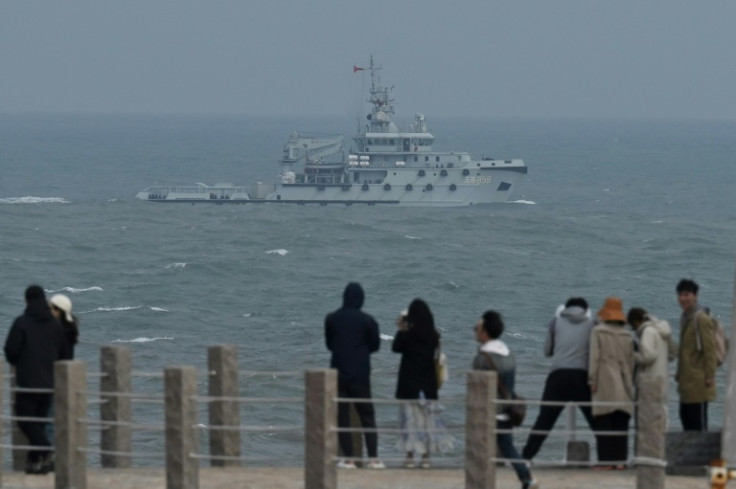US CEOs Don't Believe China Will Invade Taiwan; Think 'Xi Thinks Like They Do': Gallagher

KEY POINTS
- Mike Gallagher said business leaders believe Xi Jinping is "going down the dark path"
- Top U.S. executives think it would be "economically disastrous" for China to attack Taiwan
- Business execs believe Xi is aware of the economic implications of a Chinese attack on Taiwan
The leader of the House select committee on strategic competition between the U.S. and the Chinese Communist Party claimed that top business executives did not believe that Beijing would launch an attack against Taiwan.
Wisconsin Republican Rep. Mike Gallagher said he was shocked that California-based business leaders such as Apple CEO Tim Cook and Walt Disney CEO Bob Iger do not think Chinese President Xi Jinping would order a military offensive against Taiwan.
"They sort of grudgingly recognize that Xi is going down the dark path... but I just don't think they believe that Xi would launch a war over Taiwan," Gallagher told the Financial Times.
Gallagher said the business leaders believe it would be "economically disastrous" for Xi to attack the self-ruled island, adding that "they think Xi thinks like they do, in terms of profit, business earnings."
But the Republican lawmaker warned executives to begin realizing that "we're in the window of maximum danger over Taiwan," advising them to diversify their supply chains from China to avoid suffering from financial consequences in the event of a Chinese attack against the island.
The speculations about a possible Chinese invasion of Taiwan had flared anew in recent days, following the three days of large-scale military exercises conducted by Beijing across the Taiwan Strait.
On Tuesday, Taiwanese Foreign Minister Joseph Wu claimed that China is "trying to get ready" to launch an attack against the island, citing the recently-held Chinese military drills.
Wu said the latest Chinese military activities are "something that cannot be accepted" while expressing his confidence that Taiwanese forces are prepared to defend the island.
Several U.S. officials had already expressed concern that China is already preparing for an attack against Taiwan, including Central Intelligence Agency (CIA) director William Burns, who warned that Xi had already instructed the People's Liberation Army to begin the preparations for a military assault against the island by 2027.
In 2022, the global policy think tank Rand Corporation estimated that if the U.S. became involved in a war between China and Taiwan, it would slice 5% off the U.S. economy, the most significant economic catastrophe since the Great Depression, Yahoo Finance reported.
Discourse Magazine also warned that a China-Taiwan war could severely impact container shipments for international trade and submarine cables across the Taiwan Strait, which pose immediate and direct risks to the U.S. economy.
Taiwan Strait is crucial to 88% of the world's largest trading ships. However, a military conflict there could force them to reroute either to Indonesia or Australia, increasing monthly shipping costs of up to $2.8 billion.
The self-ruled island is also connected to 15 submarine cables after the huge investments made by U.S. tech companies to connect themselves to Asia digitally.
The magazine noted that Taiwan's cable landing stations have poor physical security, leaving them highly vulnerable to being attacked by China in case of a full-scale war on the island.
As China continues its pressure campaign against Taiwan, numerous multinational companies on the island have begun crafting their contingency plans.
Nikkei Asia asked executives of the 50 foreign companies operating in Taiwan whether they have started preparations in the event of a Chinese attack.
The survey revealed that four foreign companies in Taiwan, including a Japanese financial institution and a European energy company, already had business continuity plans, including evacuating employees and their families.
Another 19 multinational companies said they were already drafting their contingency plans.
© Copyright IBTimes 2025. All rights reserved.






















